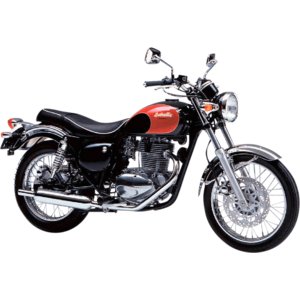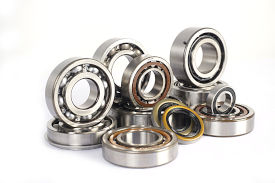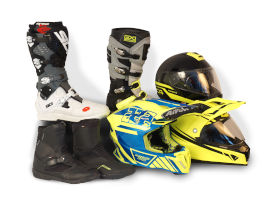Kawasaki W 250 Estrella (2007-2017): A Timeless Retro Companion Tested
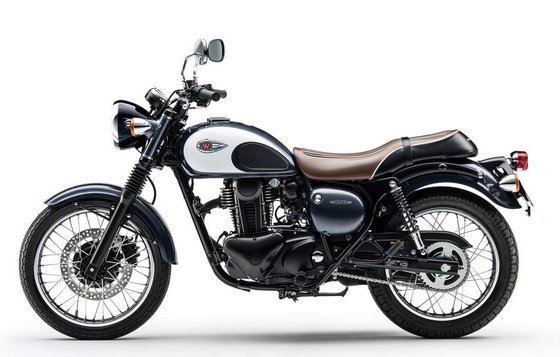
Introduction
The Kawasaki W 250 Estrella occupies a unique space in motorcycling history – a modern machine wearing vintage-inspired clothing. Produced from 2007 to 2017 primarily for the Japanese market, this 250cc single-cylinder motorcycle blends nostalgic aesthetics with approachable performance. After spending a week with a meticulously maintained 2016 Special Edition model (complete with wire-spoked wheels and Candy Caribbean Blue paint), it’s clear this motorcycle isn’t about chasing spec sheets. It’s about savoring the ride – and looking good while doing it.
Design & Build Quality: Retro Charm with Substance
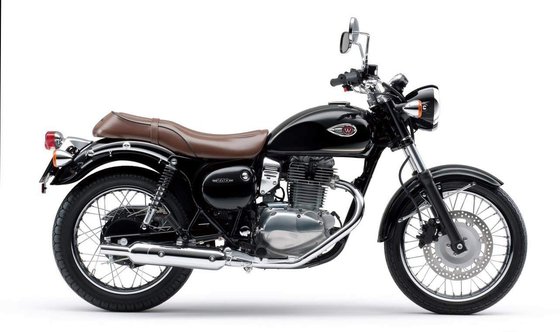
Kawasaki’s “W” heritage shines through in the Estrella’s design language. The semi-double cradle steel frame provides a classic silhouette, while the 18-inch front/17-inch rear wire-spoked wheels (on Special Edition models) add vintage flair. Paint quality is exceptional – deep metallic finishes on models like the Black/Dark Red or Blue/White variants resist fading even after years of use.
The 735 mm (28.9") seat height remains one of the most accessible in its class. Shorter riders will appreciate being able to flat-foot at stops, while the narrow 755 mm (29.7") width keeps the riding triangle compact. At 161 kg (354.9 lbs) wet weight, it’s light enough for urban maneuvering yet substantial enough to feel planted at 90 km/h (56 mph).
Engine & Performance: Smooth Operator

The liquid-cooled 249cc SOHC single-cylinder engine produces 18-20 HP (13.1-14.6 kW) depending on model year, with torque peaking at 18-20 Nm (13.3-14.8 lb-ft). These numbers seem modest until you experience the power delivery firsthand. Throttle response from the fuel injection system is crisp without being abrupt – perfect for navigating tight city streets.
Key characteristics observed during testing: - Low-Range Pull: Strong torque from 3,500 RPM makes stoplight launches surprisingly eager - Vibration Control: Rubber-mounted engine and balancer shaft keep handlebar buzz minimal up to 7,000 RPM - Fuel Efficiency: Averaged 2.8 L/100 km (84 mpg) during mixed riding – slightly higher than claimed 2.56 L/100 km (91.88 mpg) but still exceptional - Gearbox: 5-speed transmission shifts with positive clicks, though finding neutral can be tricky when hot
Riding Experience: Where Retro Meets Reality
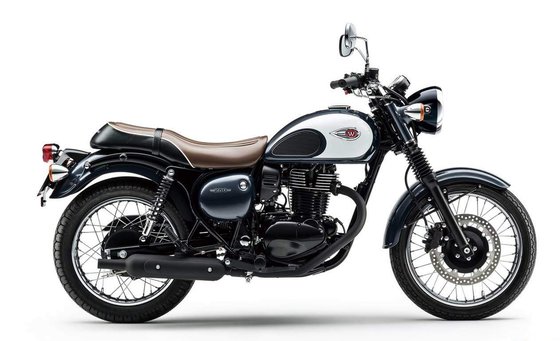
Urban Performance:
The Estrella thrives in city environments. The upright riding position provides excellent visibility, while the 1410 mm (55.5") wheelbase offers stable yet agile handling. Filtering through traffic feels natural thanks to narrow handlebars and predictable throttle response.
Highway Manners:
At sustained speeds of 100 km/h (62 mph), the engine spins at 7,500 RPM in 5th gear. While vibrations become noticeable, they never reach uncomfortable levels. Wind protection is minimal – expect to lean into the breeze at higher speeds.
Suspension & Brakes:
The telescopic fork and dual rear shocks handle pavement imperfections adequately, though harsh potholes will jolt the rider. Braking performance leans toward adequate rather than inspiring:
- Front: 300mm disc with 2-piston caliper (later models) provides progressive stopping power
- Rear: Drum brake requires deliberate pedal pressure – consider upgrading to sintered pads
Competition: Standing Out in the Crowd
The Estrella’s retro niche puts it against these notable rivals:
- Honda Rebel 250
- Pros: Lower seat height, stronger aftermarket support
-
Cons: Carbureted models lack the Estrella’s fuel-injected refinement
-
Yamaha SR400
- Pros: Larger 399cc engine, kick-start heritage
-
Cons: Significantly heavier at 179 kg (394 lbs), higher price point
-
Suzuki TU250X
- Pros: Fuel injection, modern reliability
- Cons: Less authentic retro styling compared to Kawasaki’s W heritage
Estrella’s Edge:
Unique combination of authentic 1960s W-series styling cues with modern fuel injection. The 250cc displacement avoids Japan’s strict licensing requirements for larger bikes, making it a popular commuter choice.
Maintenance: Keeping the Retro Alive
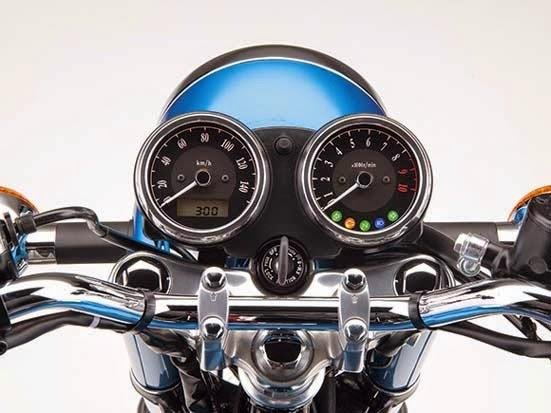
Routine Care:
- Oil Changes: Every 4,000 km (2,485 miles) using 10W-40 JASO MA2 oil
- Valve Clearances: Check every 12,000 km (7,456 miles) – shim-under-bucket system requires technical skill
- Chain Maintenance: O-ring chain needs lubrication every 500 km (310 miles) in humid climates
Common Upgrade Opportunities:
1. Brake Pads: Swap stock organic pads for sintered metal compounds
2. Tires: Upgrade to radial construction tires like Michelin Pilot Street for improved wet grip
3. Suspension: Progressive-rate springs enhance load capacity for two-up riding
4. Exhaust: Slip-on mufflers from brands like Vance & Hines boost mid-range character
Longevity Considerations:
- Regularly inspect the steel frame for rust, especially around weld points
- Flush coolant every 2 years regardless of mileage
- Check wheel spokes monthly for proper tension (85-90 Nm on spoked models)
Conclusion: More Than Just a Pretty Face
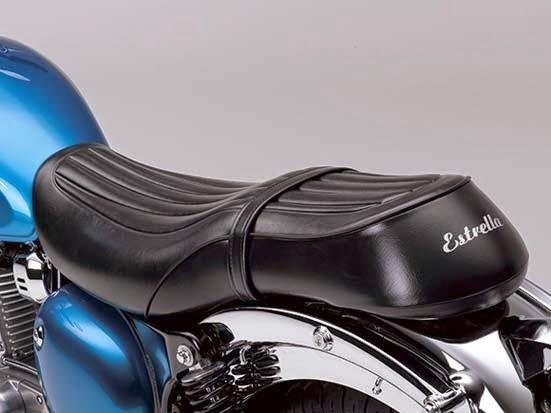
The Kawasaki W 250 Estrella proves that motorcycles don’t need blistering performance to create lasting appeal. Its combination of approachable power, timeless styling, and Kawasaki’s renowned reliability make it ideal for:
- Urban commuters seeking style beyond generic scooters
- Vintage enthusiasts wanting modern mechanics
- New riders desiring manageable power with grown-up aesthetics
While not without compromises – the basic suspension and dated rear brake come to mind – these flaws become forgivable when you’re cruising through city streets turning heads. For current owners, MOTOPARTS.store offers everything from period-correct accessories to performance upgrades that honor the Estrella’s spirit while enhancing its capabilities. Whether maintaining stock authenticity or personalizing your ride, this Kawasaki remains a canvas for self-expression on two wheels.
Specifications sheet
| Engine | |
|---|---|
| Stroke: | Four-stroke |
| Max power: | 13 kW | 17.0 hp |
| Max torque: | 18 Nm |
| Fuel system: | Fuel Injection |
| Max power @: | 8000 rpm |
| Displacement: | 249 ccm |
| Fuel control: | Single Overhead Cams (SOHC) |
| Max torque @: | 6000 rpm |
| Bore x stroke: | 66.0 x 73.0 mm (2.6 x 2.9 in) |
| Configuration: | Single |
| Cooling system: | Liquid |
| Compression ratio: | 9.0:1 |
| Number of cylinders: | 1 |
| Dimensions | |
|---|---|
| Wheelbase: | 1410 mm (55.5 in) |
| Dry weight: | 146 |
| Wet weight: | 162 |
| Seat height: | 735 mm (28.9 in) |
| Overall width: | 755 mm (29.7 in) |
| Overall height: | 1030 mm (40.6 in) |
| Overall length: | 2075 mm (81.7 in) |
| Ground clearance: | 170 mm (6.7 in) |
| Fuel tank capacity: | 13 L (3.4 US gal) |
| Drivetrain | |
|---|---|
| Clutch: | Wet, multi-plate |
| Final drive: | chain |
| Transmission: | 5-speed |



